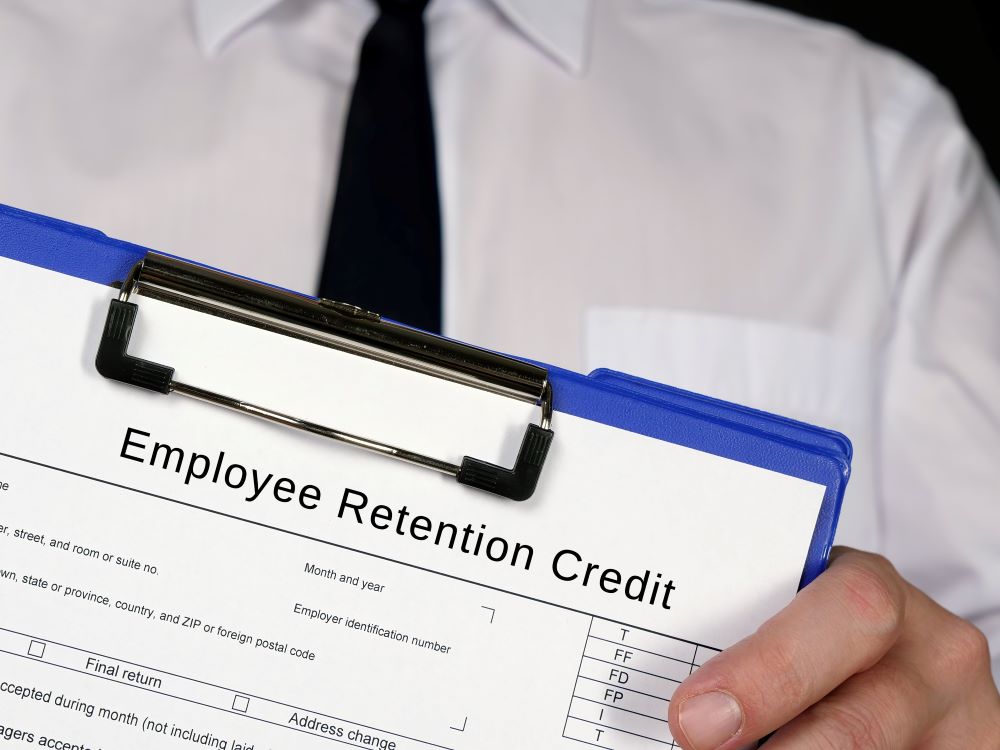Recent Updates to the Employee Retention Credit

As vaccinations for COVID-19 continue to be administered, businesses throughout New Jersey and Pennsylvania are excited to see certain government orders slowly rolling back. While this is certainly a promising step towards returning to “normal,” the reality is the damage suffered over the last year is almost impossible. That is why the recently enacted the American Rescue Plan Act of 2021 (ARPA), signed by President Biden on March 11, 2021, provides over $1.9T in relief for struggling individuals, families, and businesses.
While the ARPA is littered with opportunities, including economic stimulus checks, extended unemployment, an expansion of the Paycheck Protection Program (PPP), and other favorable changes to tax incentive programs. Perhaps the change with the most immediate impact for businesses were those made to the Employee Retention Credit (ERC). Not only was there an extension of the ERC through the end of 2021, but some changes permit more businesses to benefit from the tax credit.
Key 2021 ERC Changes
- Employer Medicare Tax – Under prior regulations, the ERC was a refundable credit applied against the employer’s Social Security taxes share. The ARPA changed it to be a credit against the employer’s 1.45% share of the Medicare Tax.
- Recovery Start-up Businesses – The ARPA expanded eligibility rules to allow recovery start-up businesses (RSB) to claim the credit. The definition of an RSB is a company that did not otherwise qualify for the credit, started business on or after February 15, 2020, and has annual gross receipts (over a three-year lookback period) that do not exceed $1M. While the per-employee credit amount is typically limited to $7,000 per employee, these companies are limited to a total credit of $50,000 for all employees per quarter.
- Severely Financially Distressed Employers – This new class of companies is permitted to consider all wages paid as eligible when claiming the credit. These companies are defined as those with gross receipts less than 10% compared to the same calendar quarter from 2019.
- Qualified Wages – Changes were made to the definition of qualified wages for small employers. The change includes wages paid to employees, whether providing services or not, during the suspension period or the quarter when the gross receipts test was met. It is important to note that wage expenses paid with the PPP, Restaurant Revitalization Grant, and Shuttered Venues Operators Grant may not be used as qualifying wages when calculating credit amounts.
- Deadline Extension – Under the Consolidated Appropriations Act, 2021, the ERC was extended through June 30, 2021. As mentioned above, the ARPA further extends the credit through December 31, 2021, expanding the saving opportunities.
- IRS Assessment Period – Many businesses may be surprised to learn the statute of limitations period for IRS assessment. The IRS has to review tax filings and has been extended from three to five years. Given the change, it is important to retain relevant documentation used when applying for the extended period.
- Effective Date – The changes outlined in the ARPA are effective, starting with wages paid after June 30, 2021, and before January 1, 2022.
Contact Us
The changes to the Employee Retention Credit are welcome news for struggling New Jersey and Pennsylvania-area businesses. It is essential to consult with a qualified tax advisor to determine eligibility and start the planning process to maximize savings. If you have questions about the information outlined above or need assistance with claiming the ERC, Klatzkin can help. For additional information, click here to contact us. We look forward to speaking with you soon.
©2021 Klatzkin & Company LLP. The above represents our best understanding and interpretation of the material covered as of this post’s date and does not constitute accounting, tax, or financial advice. Please consult your advisor concerning your specific situation.
